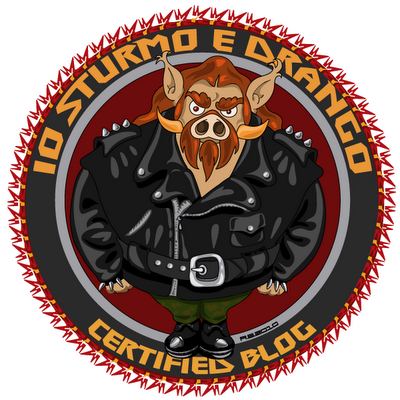- BOINC (Projects Platform)
The Berkeley Open Infrastructure for Network Computing (BOINC), is an open-source middleware system. It supports volunteer and grid computing. Originally developed to support the SETI@home project, it became generalized as a platform for other distributed applications in areas as diverse as mathematics, linguistics, medicine, molecular biology, climatology, environmental science, and astrophysics, among others. BOINC aims to enable researchers to tap into the enormous processing resources of multiple personal computers around the world.
I’ve installed this middleware on some rock solid and powerful workstations completely designed and assembled by me. The projects I have been contributing are:
- Seti@Home (from 27 Oct 2001),
- Rosetta@Home (from 16 Jan 2007),
- Universe@home (from 13 Jun 2017),
- World Community Grid (from 11 Aug 2016).
Over time, my workstations has completed more work units than 98% of all BOINC contributors.
- ROSETTA@HOME (Project – from 16 Jan 2007)
Distributed computing project for protein structure prediction on the Berkeley Open Infrastructure for Network Computing (BOINC) platform, run by the Baker laboratory at the University of Washington. Rosetta@home aims to predict protein–protein docking and design new proteins with the help of about sixty thousand active volunteered computers processing at 83 teraFLOPS on average as of April 18, 2014. Foldit, a Rosetta@Home videogame, aims to reach these goals with a crowdsourcing approach. Though much of the project is oriented towards basic research on improving the accuracy and robustness of the proteomics methods, Rosetta@home also does applied research on malaria, Alzheimer’s disease and other pathologies. - SETI@HOME (Project – from 27 Oct 2001)
S@H is an Internet-based public volunteer computing project employing the BOINC software platform, hosted by the Space Sciences Laboratory, at the University of California, Berkeley, in the United States. SETI is an acronym for the Search for Extra-Terrestrial Intelligence. Its purpose is to analyze radio signals, searching for signs of extra terrestrial intelligence, and is one of many activities undertaken as part of SETI. SETI@home was released to the public on May 17, 1999, making it the second large-scale use of distributed computing over the Internet for research purposes, as Distributed.net was launched in 1997. Along with MilkyWay@home and Einstein@home, it is the third major computing project of this type that has the investigation of phenomena in interstellar space as its primary purpose. - UNIVERSE&HOME (Project – from 13 Jun 2017)
Universe@home project’s two main goals are: to provide scientist with a necessary computational power and to provide the way of involvement for anyone equipped with a computer and willing to take part in the research.
Our simulations deal with fundamental problems of the Universe, which cannot be investigated in a laboratory. From the birth of stars to the utmost energetic supernova explosions, nature still astonishes us but at the same time leaves ways for scientific examination.
We explore the structures of the Universe, nuclei of stars and evolution of galaxies. Using the strength of our minds we crack problems that are not tangible and cannot be examined in laboratory. - WORLD COMMUNITY GRID (Project – from 11 Aug 2016)
World Community Grid enables anyone with a computer, smartphone or tablet to donate their unused computing power to advance cutting-edge scientific research on topics related to health, poverty and sustainability. Through the contributions of over 650,000 individuals and 460 organizations, World Community Grid has supported 29 research projects to date, including searches for more effective treatments for cancer, HIV/AIDS and neglected tropical diseases. Other projects are looking for low-cost water filtration systems and new materials for capturing solar energy efficiently. - WIKIMEDIA FOUNDATION (Cause/Donation)
The Wikimedia Foundation, Inc. is a nonprofit charitable organization dedicated to encouraging the growth, development and distribution of free, multilingual, educational content, and to providing the full content of these wiki-based projects to the public free of charge. The Wikimedia Foundation operates some of the largest collaboratively edited reference projects in the world, including Wikipedia, a top-ten internet property. The Wikimedia Foundation is proud to be one of the most transparent non-profit American organizations in the world. - ITALIAN RED CROSS (Volunteering, from November 2015)
The Italian Red Cross aims at providing medical and social assistance both in times of war and in times of peace. For over 150 years this Organization has been intervening to tackle situations of vulnerability among communities using its own means and resources, spreading a culture of non-violence and contributing to the promotion of human dignity. Supporting the Red Cross means contributing to the daily efforts of the biggest Humanitarian Organization in the World. - WINDOWS INSIDER PROGRAM (Project – from 23 October 2014)
The Windows Insider program by Microsoft allows users to sign up for early builds of the Windows operating system previously only accessible to developers. It was announced on September 30, 2014 along with Windows 10. By the end of 2014 over 1.5 million people have already installed the Windows 10 technical preview. On February 12, 2015, Microsoft used the program to deliver a preview for the mobile phone version of Windows 10. Microsoft announced that the Windows Insider program would continue beyond the official release of Windows 10 for future updates.
